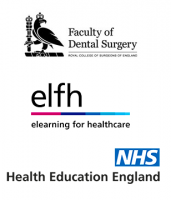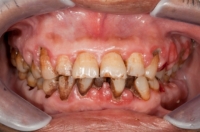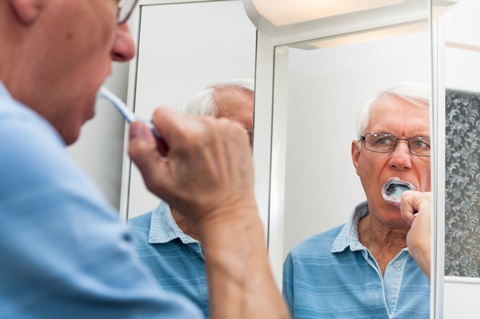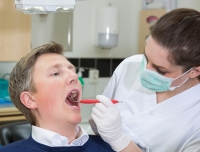Assessing Patient Adherence course for Dental Practice



This session discusses how the COM-B model and behaviour change wheel can be useful tools in improving patients' oral hygiene behaviour.
Learning Objectives
By the end of this session you will be able to:
- Identify, in relation to Dentistry, the targets for behaviour change
- Define the terms capability, opportunity and motivation in relation to behaviour change and how their use improves patient adherence to advice
- Discuss the opportunities for implementing behaviour change in your practice
An understanding of behavioural change is vital to clinical teams. This will ensure that they fully understand the patients they treat in order to use psychological interventions to improve oral hygiene behaviour, which will help patients adhere to the advice given.
Before commencing this session you should have knowledge of:
- Carrying out practical oral hygiene instruction techniques
- The link between oral health and systemic health
Michael Wheeler qualified as a Dental Hygienist in the late seventies, spending his early career in the Royal Air Force. His first NHS appointment was as Oral Health Promotion Co-ordinator in Somerset focusing on both the development of programmes for care staff and those in early years education. Mike then held a variety of NHS management appointments ranging from developing a community dental service to PDS to commissioning of dental services, including the introduction of the 2006 dental contract; more recently he was responsible for the management of Bristol Dental Hospital and School.
He is a past president of BSDHT and trustee of the British Dental Health Foundation. Currently Michael combines a role in general dental practice with training members of the wider dental team, as well as being Dental Advisor to the Centre for Workforce Intelligence and a Dental Tutor for the South West Dental Deanery.


Tim Newton is Professor of Psychology as Applied to Dentistry at King’s College London Dental Institute. He also holds Honorary Consultant Health Psychologist positions with Guy’s & St Thomas’ NHS Foundation Trust, King’s College Hospital NHS Foundation Trust, and Queen Mary’s Sidcup Hospital Trust.
Tim has worked in the behavioural sciences in relation to dentistry for over 20 years, and his particular interests include the management of dental anxiety, the working life of the dental team and patients’ perceptions of treatment.
In 2008, in conjunction with colleagues Dr Koula Asimakopoulou and Dr Suzanne Scott he founded the King’s College London Dental Institute Health Psychology Service for individuals who are dentally anxious. He is founding Editor, with Dr Sasha Scambler, of the journal Social Science & Dentistry.


- Hypnosis in dentistry
- Posted By eIntegrity Healthcare e-Learning
- Posted Date: 2024-12-31
- Location:Online
- This session looks at the potential role of hypnosis in anxiety and pain control in dentistry. Le...
- An Introduction to Sustainable Dentistry and Measu...
- Posted By eIntegrity Healthcare e-Learning
- Posted Date: 2024-12-28
- Location:Online
- This session provides an introduction to sustainability in healthcare and guidance on the practical ...
- Clinical Governance for Dental Practice
- Posted By eIntegrity Healthcare e-Learning
- Posted Date: 2024-12-28
- Location:Online
- This session will describe clinical governance and consider how its various components assure delive...
- Evidence-based Practice course for Dental Practice...
- Posted By eIntegrity Healthcare e-Learning
- Posted Date: 2024-12-28
- Location:Online
- This session describes the process of evidence-based practice. Learning Objectives By the end ...
- Consumer Agencies course for Dental Practice
- Posted By eIntegrity Healthcare e-Learning
- Posted Date: 2024-12-28
- Location:Online
- This session provides an outline of the roles that consumer groups have taken up in healthcare and t...







